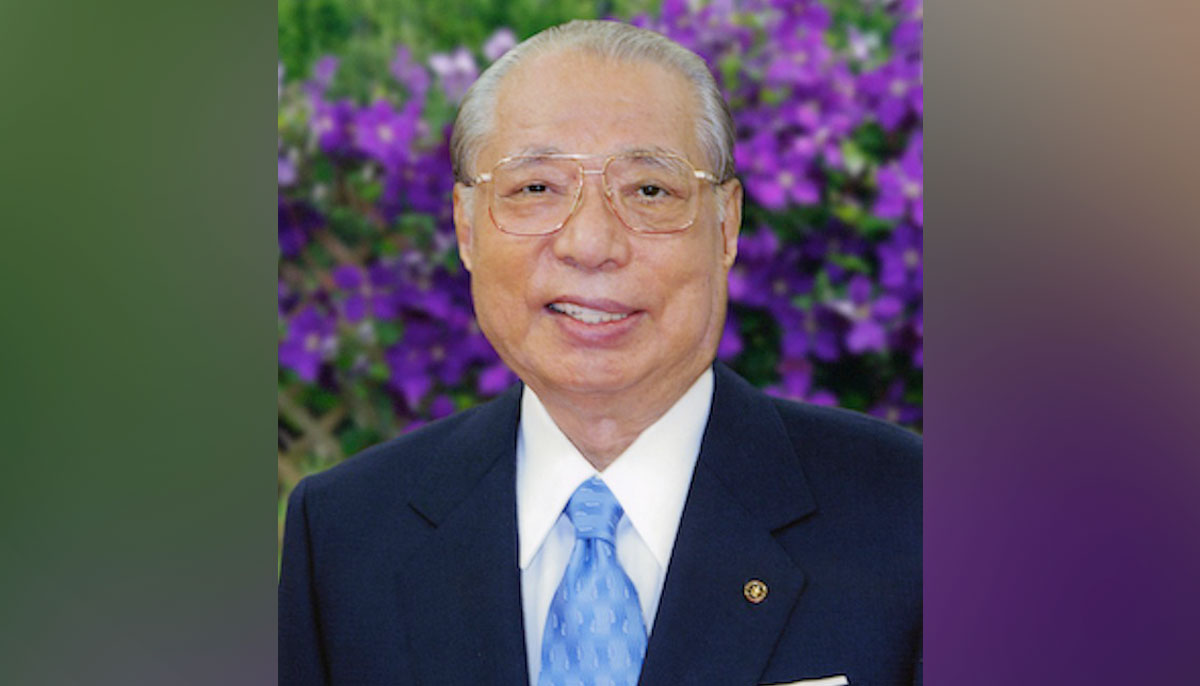
Daisaku Ikeda, the president of Soka Gakkai International (SGI), a global Buddhist association originating in Japan that practices the teachings of Nichiren Buddhism, died of natural causes on November 15 at his home in Tokyo, a statement by Soka Gakkai confirms. He was 95.
Ikeda was also the honorary president of Soka Gakkai, the parent association of SGI, which was founded in Japan in 1930. He was inaugurated as the third president of Soka Gakkai in 1960, and went on to serve as president for nearly two decades. As the New York Times reports, in that time Ikeda was credited with popularizing the movement globally, with Soka Gakkai now reporting followers in 192 countries, including over “8 million households in Japan and 2.8 million members in the rest of the world.”
Ikeda was born on January 2, 1928, in Tokyo to a family of seaweed farmers. Witnessing the violence of World War II, in which his four older brothers served and eldest brother died, inspired his dedication to work for peace. Ikeda met Soka Gakkai’s then-leader, Josei Toda, in 1947, who inspired him to practice Nichiren Buddhism, employed Ikeda at his publishing company, and helped Ikeda complete his education.
When Ikeda took over leadership of Soka Gakkai, he traveled outside of Japan to spread Soka Gakkai’s message, recruiting members and meeting with global leaders. This led to Ikeda’s founding of the association’s international output, SGI, in 1975, which has since dedicated its efforts to promoting peace, culture, and education. SGI also gained a number of celebrity members, including jazz musicians Herbie Hancock and the late Wayne Shorter, and rock ‘n’ roll icon Tina Turner.
The New York Times notes Ikeda’s greatest legacy as his leading Soka Gakkai into politics in 1964, when he formed the political party Komeito, or Clean Government, to promote social welfare and peace. Though the party is now independent of Soka Gakkai, it has been a coalition partner for Japan’s ruling Liberal Democratic Party since 1999.
Soka Gakkai describes Ikeda as a “Buddhist philosopher, peacebuilder, educator, author and poet,” having published over 250 translated works ranging from commentaries on Buddhism to children’s stories. He has authored annual peace proposals to the United Nations since 1983, with recent years’ calling for action in areas of global concern including climate change, nuclear weapons, and the refugee crisis. Ikeda also founded an education system encompassing schools in Japan, Brazil, Malaysia, and the United States.
He is survived by his wife, Kaneko, and his sons Hiromasa and Takahiro.

